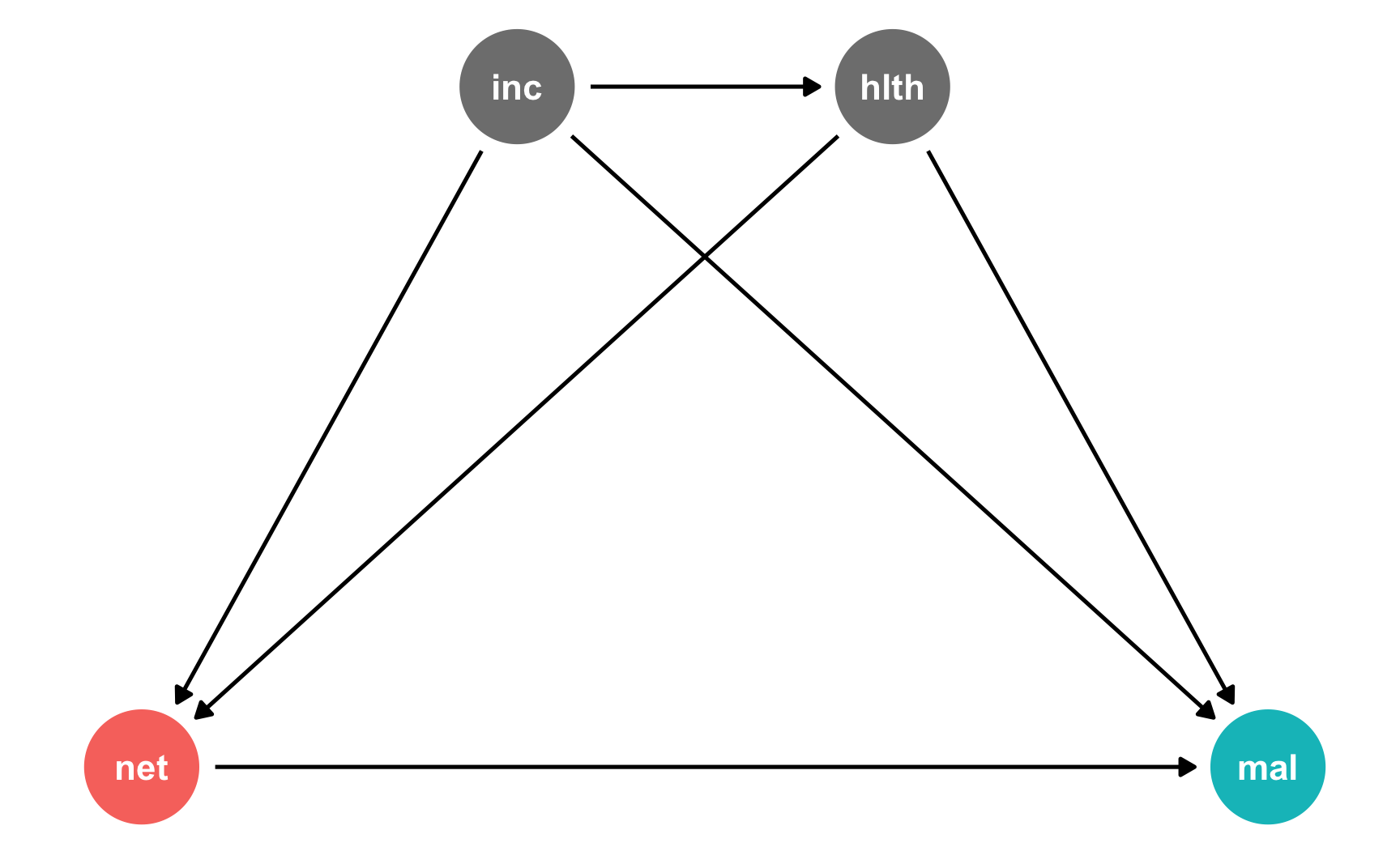In February this year I wroute about how many parameters functions should have, looking at some other languages, with a detailed look at R. On a related topic … As I work on many R packages that are API clients for various web services, I began wondering: What is the best way to deal with API routes that have a lot of parameters?
Messaggi di Rogue Scholar

In my post on generating inverse probability weights for both binary and continuous treatments, I mentioned that I’d eventually need to figure out how to deal with more complex data structures and causal models where treatments, outcomes, and confounders vary over time.

My program evaluation class is basically a fun wrapper around topics in causal inference and econometrics. I’m a big fan of Judea Pearl-style “causal revolution” causal graphs (or DAGs), and they’ve made it easier for both me and my students to understand econometric approaches like diff-in-diff, regression discontinuity, and instrumental variables.

I build an app that lets you explore my econospeak data.

Here’s a tale about empirical work that demonstrates a simple rule: the deeper you go, the harder it gets.
\ Code is often arranged in packages for any given language. Packages are often cataloged in a package registry of some kind: NPM for node, crates.io for Rust, etc. For R, that registry is either CRAN or Bioconductor (for the most part). CRAN has the concept of an archived package.
taxizedb arose from pain in using taxize when dealing with large amounts of data in a single request or doing a lot of requests of any data size. taxize works with remote data sources on the web, so there’s a number of issues that can slow the response down: internet speed, server response speed (was a response already cached or not; or do they even use caching), etc.
Inspired by an email exchange I had with someone on theoretically non-exclusive hypotheses in Bayesian process tracing, I believed it might be useful to write down some thoughts in a blog post. It ended up as a PDF on Github because it has a minor R element and formal notation.

Here are 10 tips for making charts that pop.

I take a break from political economy and talk computer science.